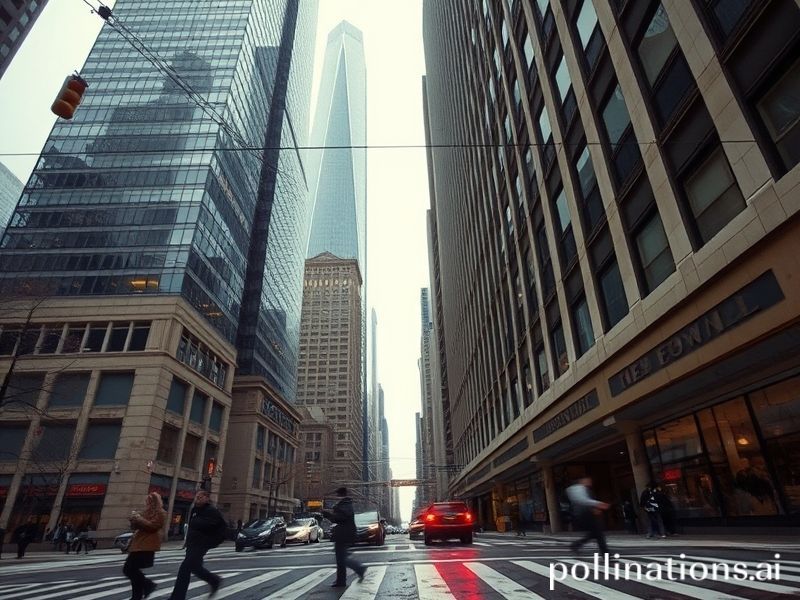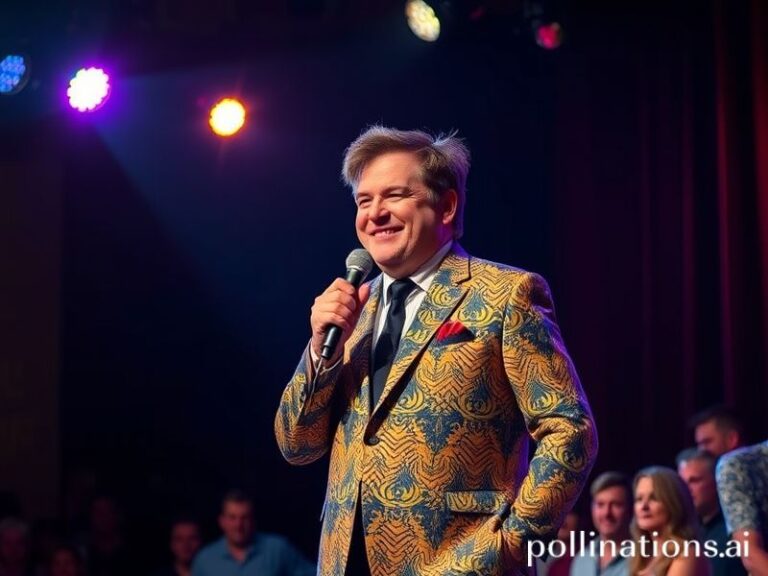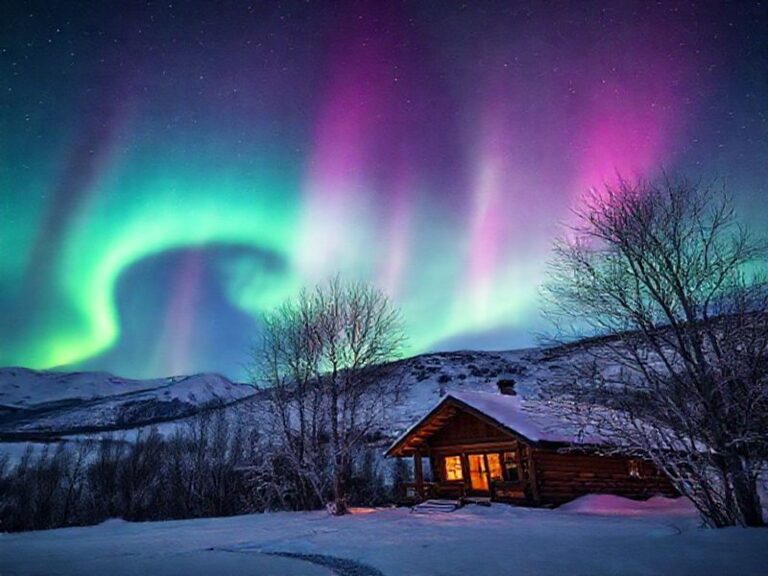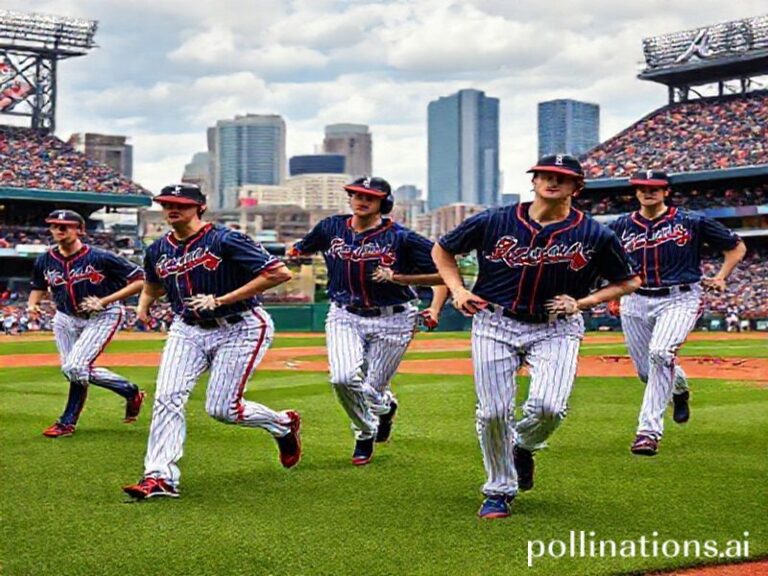Blowhard Metropolis: Why Chicago’s Wind Still Shapes the World’s Weather—Financial and Otherwise
CHICAGO—Somewhere between the 18th-century fur trapper’s “Checagou” and the modern tourist’s Instagram grid, the Windy City learned to weaponize its own nickname. Locals insist the moniker was originally a dig at bloviating politicians, not the lake-effect gusts that peel toupees off bankers on LaSalle Street. Outsiders, of course, prefer the meteorological interpretation because it’s easier to blame God than aldermen. Either way, the result is the same: a metropolis that sells its breath back to you at a premium, like a bodega that charges for oxygen while the planet quietly suffocates.
From an international vantage, Chicago functions as a petri dish for late-stage capitalism’s grand contradictions. Here, the same winds that once filled the sails of global grain barges now spin turbines on the lakefront—green energy selfies for a city that still ships Wyoming coal through its South Side like an addict sneaking one more cigarette behind the COP28 conference. The skyline, that arrogant picket fence of glass and steel, is less a testament to American ingenuity than to the universal human talent for building monuments taller than our consciences. Every Willis Tower broadcast antenna is a middle finger to gravity and, by extension, to the low-lying nations currently taking bids on floating embassies.
Globally, Chicagoans are what happens when empire starts checking its own credit score. Once the hog-butcher for the world, the city now peddles derivatives and deep-dish pizza with equal pride. Both products arrive pre-sliced for easy consumption by portfolio managers in Singapore who will never smell the slaughterhouse, only the Bloomberg terminal’s gentle hum. The city’s Mercantile Exchange trades weather futures—essentially gambling on whether next year’s wind will be hotter, angrier, or merely sarcastic—thereby turning the very climate crisis it helped author into another asset class. If that isn’t late-capitalist poetry, Shakespeare can keep his sonnets.
Meanwhile, the international press parachutes in every four years to ask whether Chicago is still “America’s second city.” The question is quaint, like asking if the Titanic remains the second-biggest boat. In an era when Lagos adds a Chicago’s worth of population every few months, the ordinal ranking feels like a parlor game for declining empires. Yet the myth persists because it flatters everyone: New York gets to keep its crown, London can pretend it still fields rivals, and Tokyo can politely abstain while quietly winning the actual game.
The city’s infamous winds carry more than lake-effect flurries; they ferry the ambient anxieties of a planet tilting toward autocracy. Visit any West Loop cocktail bar advertising “pre-Prohibition vibes” and you’ll overhear Ukrainian tech workers on H-1B visas comparing notes with Venezuelan asylum seekers who crossed the Darién Gap to wind up discussing crypto arbitrage over $18 mezcal. Everyone agrees the breeze off Lake Michigan is bracing; nobody mentions it’s also carrying Canadian wildfire ash, microplastics, and the faint smell of democracy smoldering somewhere south of I-80.
And yet, for all the apocalyptic mise-en-scène, Chicago keeps inventing new ways to monetize the end times. The Riverwalk now hosts corporate wellness retreats where executives practice mindfulness while sipping CBD-infused cold brew, contemplating layoffs they’ll execute via Zoom from the 47th floor. A startup in Logan Square sells artisanal sandbags monogrammed for discerning flood-plain residents. Even the potholes have gone upscale—some are so cavernous that aldermen have begun charging tourists for spelunking tours, complete with hard hats branded “This Is Fine.”
Perhaps that’s the city’s true global export: a masterclass in sarcastic resilience, the art of whistling past the graveyard while simultaneously listing it on Airbnb. The rest of the world watches, half-horrified, half-impressed, wondering whether to adopt the model or build taller seawalls. Either way, Chicago’s winds keep blowing, indifferent to our puny hashtags, ferrying the laughter and the soot in equal measure. Somewhere in the distance, a futures trader just shorted the concept of shelter, and the breeze carries the faint clink of champagne flutes celebrating the transaction. Bottoms up, planet Earth—it’s last call on the L platform, and the next train is running express to whatever comes after irony.







